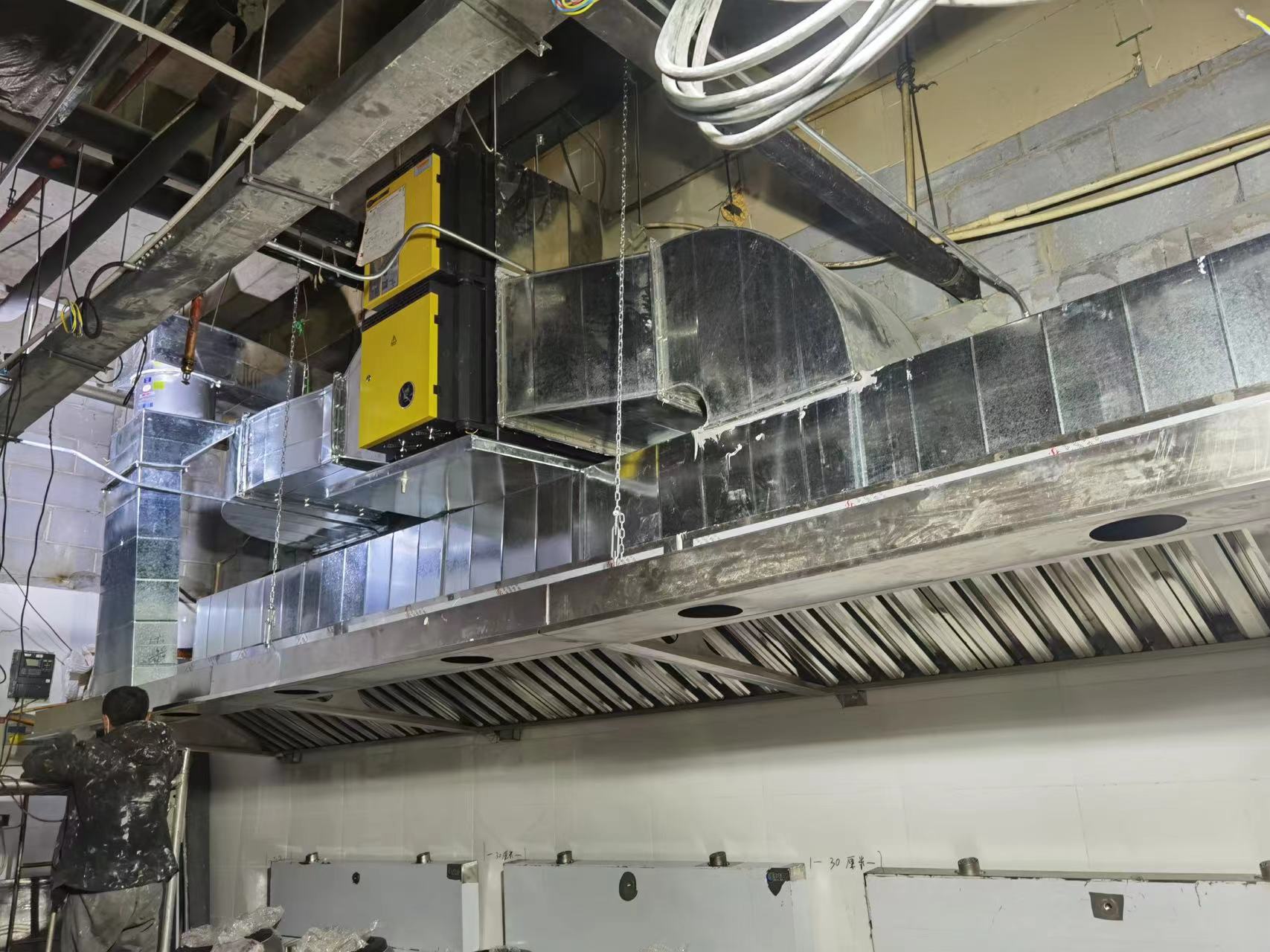一、電阻消聲器
1、 Resistance muffler
電阻式消聲器利用吸聲材料的吸聲功能來噪聲。其結構是將吸聲材料固定在有空氣流動的管道內(nèi)壁上,或以一定的方式布置在管道或殼體內(nèi),形成一個阻性消聲器。吸聲材料能部分吸收入射到其上的聲能。聲能被吸收的原因是吸聲材料的多孔性和疏松性。當聲波進入孔隙時,孔隙中的空氣和物質(zhì)由于摩擦和粘滯阻力產(chǎn)生微小振動。相當一部分聲能被轉換成熱能并被吸收。
The resistance muffler uses the sound absorption function of sound absorbing materials to eliminate noise. Its structure is to fix the sound absorbing material on the inner wall of the pipe with air flow, or arrange it in the pipe or shell in a certain way to form a resistive muffler. The sound absorbing material can partially absorb the sound energy incident on it. The reason why sound energy is absorbed is the porosity and porosity of sound absorbing materials. When the sound wave enters the pore, the air and material in the pore will produce tiny vibration due to friction and viscous resistance. A considerable part of sound energy is converted into heat energy and absorbed.
它對高頻和中頻噪聲的降噪效果較好,但對低頻噪聲的降噪效果較差。
It has good noise reduction effect on high-frequency and intermediate frequency noise, but poor noise reduction effect on low-frequency noise.
1. 管式消聲器
1. Pipe muffler
管式消聲器是簡單的消聲器。它只在管壁內(nèi)緣粘貼一層吸聲材料,所以又稱“管襯”。其特點是制造方便,阻力小,但只適用于小風管,直徑一般不超過400mm。管式消聲器僅對中高頻吸聲有一定的消聲效果。低頻率下性能差。
The tubular muffler is a simple muffler. It only sticks a layer of sound absorbing material on the inner edge of the pipe wall, so it is also called "pipe lining". It is characterized by convenient manufacturing and small resistance, but it is only applicable to small air ducts, and the diameter generally does not exceed 400mm. The tubular muffler has a certain sound attenuation effect only for medium and high frequency sound absorption. Poor performance at low frequencies.
2. 板和格式消聲器
2. Plate and format muffler
管式消聲器低頻性能差,易通過中、高速率噪聲。此外,當管道截面面積較大時,會影響高頻噪聲的消聲效果。這是因為高頻聲波(短波長)在管道中以窄束傳播。管面積大時,聲波之間的聯(lián)系和管壁上的吸聲材料降低,這樣沉默的高頻聲音降低,因此,空氣管的很大部分,部分可分為幾個網(wǎng)格,芯片和格式消音器。片狀消聲器應用廣泛,結構簡單。格式消聲器的有效截面積不得小于風管的截面積,因此體積較大,每個格網(wǎng)的尺寸應控制在200mm × 200mm左右。板式消聲器的板間間距一般在100 ~ 200mm范圍內(nèi)。當板間距加大時,消聲量相應減小。
The tubular muffler has poor low frequency performance and is easy to pass through medium and high speed noise. In addition, when the pipe section area is large, it will affect the noise reduction effect of high-frequency noise. This is because high-frequency sound waves (short wavelengths) travel in narrow beams in the pipe. When the pipe area is large, the connection between sound waves and the sound absorbing material on the pipe wall will be reduced, so the silent high-frequency sound will be reduced. Therefore, a large part of the air pipe can be divided into several grids, chips and format silencers. The sheet muffler is widely used and simple in structure. The effective sectional area of the format muffler shall not be less than the sectional area of the air duct, so the volume is large, and the size of each grid shall be controlled within 200mm × About 200mm. The spacing between plates of plate muffler is generally 100~200mm. When the plate spacing increases, the noise reduction amount decreases accordingly.

二、共振消聲器
2、 Resonant muffler
吸聲材料對低頻噪聲的吸收能力通常很低。僅僅通過增加吸聲材料的厚度來提高吸聲效果是不經(jīng)濟的。為了提高低頻噪聲的吸聲效果,通常采用諧振式消聲器。諧振消聲器的形式是,所述管口與所述諧振腔連接,所述小孔處的氣柱與所述腔內(nèi)的空氣形成彈性諧振系統(tǒng)。當外界噪聲頻率與共振系統(tǒng)固有頻率相同時,小孔內(nèi)的氣柱發(fā)生共振,與孔壁劇烈摩擦,可消耗聲能,從而達到消聲的目的
The absorption capacity of sound absorbing materials to low-frequency noise is usually very low. It is not economical to improve the sound absorption effect only by increasing the thickness of the sound absorption material. In order to improve the sound absorption effect of low-frequency noise, resonant muffler is usually used. The resonant muffler is in the form that the nozzle is connected with the resonant cavity, and the air column at the small hole forms an elastic resonant system with the air in the cavity. When the frequency of the external noise is the same as the natural frequency of the resonance system, the air column in the hole will resonate and rub violently with the hole wall, which can consume sound energy, so as to achieve the purpose of noise elimination
上一篇:廚房排煙管道結構標準及使用常識!
下一篇:酒店及餐飲廚房排煙常見的處理方法



